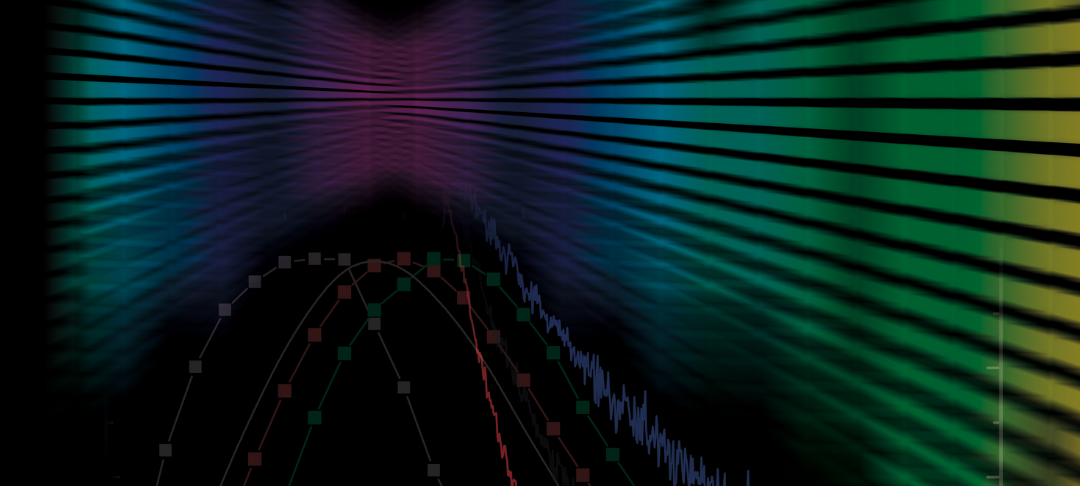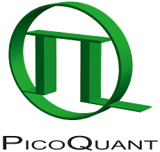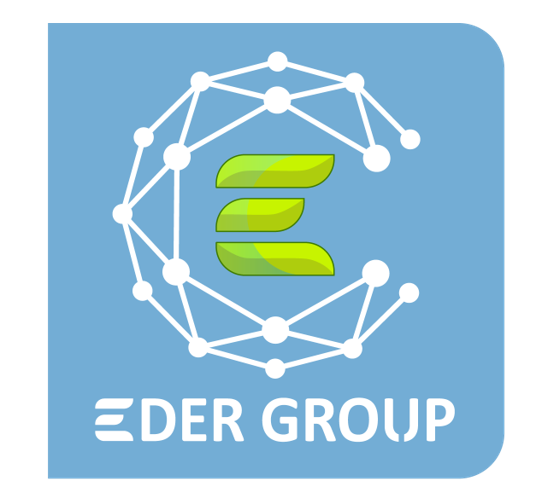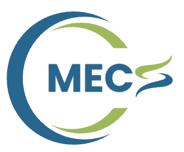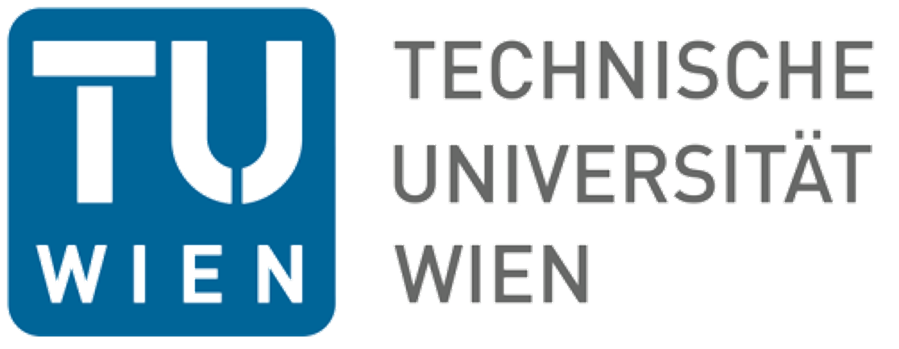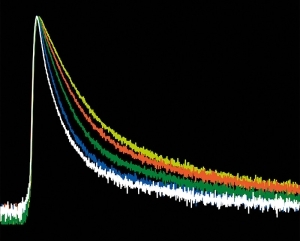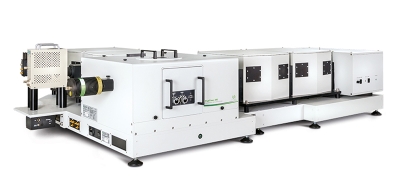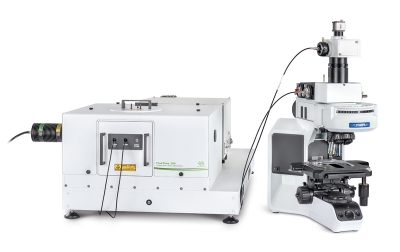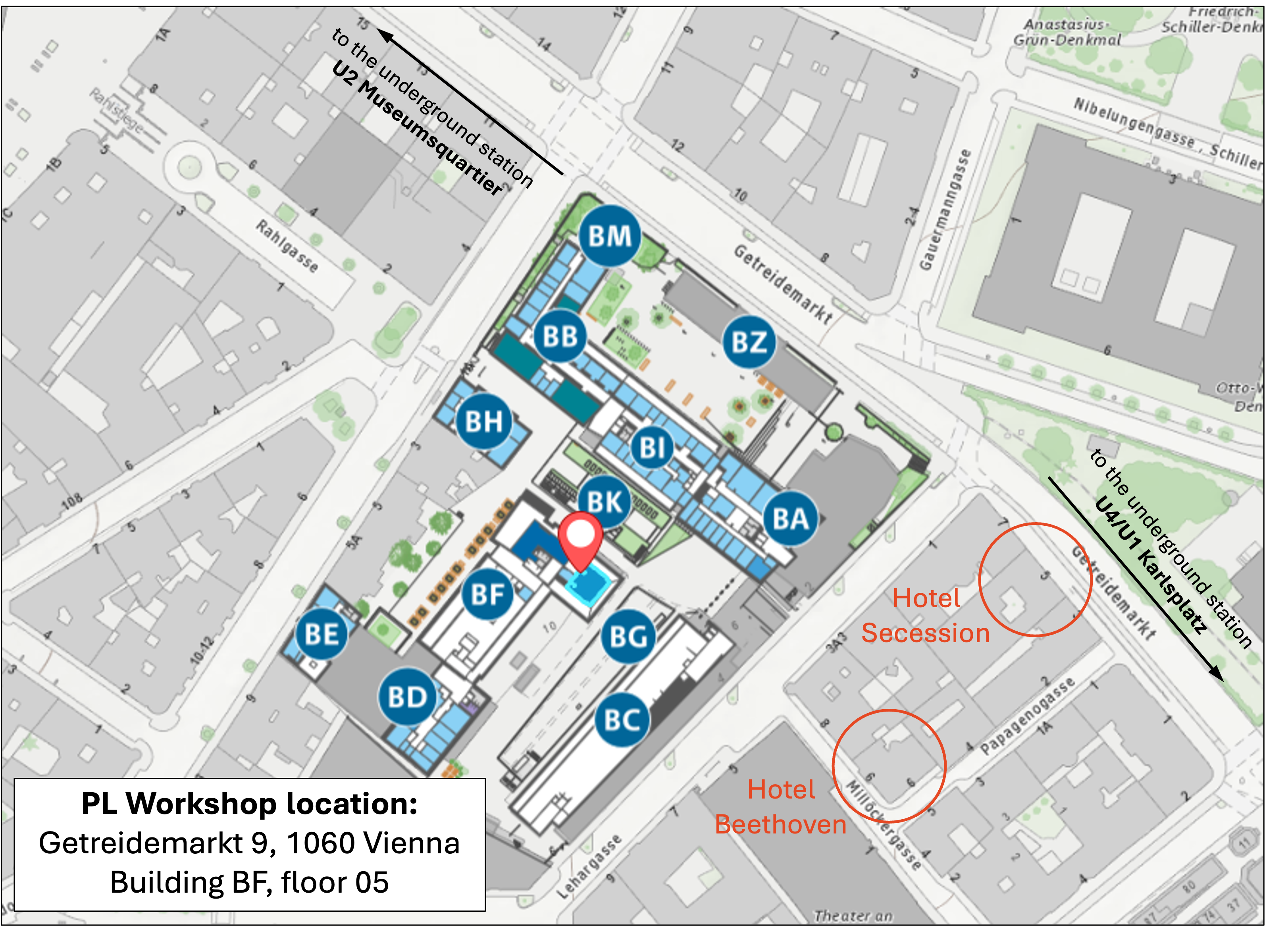Workshop on Photoluminescence Spectroscopy
Join Us for a 1.5-Day Workshop on Photoluminescence Spectroscopy
in Materials Research
February 19 - 20, 2026 | TU Wien, Vienna, Austria
We’re excited about the upcoming 1.5-day workshop dedicated to photoluminescence spectroscopy in materials research, powered by MECS and hosted by the Eder Group at TU Wien in collaboration with PicoQuant.
This event offers a unique opportunity to:
- Watch presentations of invited speakers and different users with focus on photoluminescence spectroscopy
- Discover the latest innovations in photoluminescence instrumentation and techniques
- Participate in hands-on sessions with the FluoTime 300 high-end photoluminescence spectrometer (PicoQuant) and FluoMic microscope (PicoQuant)
Organizers and Partners
Confirmed Invited Speakers
- Ute Resch-Genger, Head of Biophotonics Division 1.2 Biophotonic
Bundesanstalt für Materialforschung und -prüfung (BAM Berlin)
- Filip Mravec, Associate Professor at Institute of Physical and Applied Chemistry
Brno University of Technology
About Methods and Materials
- Materials investigated: solids, thin films, powders, solutions of organic chromophores and quatum dots, etc.
- Methods used: photoluminescence (PL), time-resolved photoluminescence (TRPL), time-resolved emission spectra, photoluminescence lifetime imaging,
absolute photoluminescence quantum yield measurements, temperature-dependent photoluminescence spectroscopy
Get Hands-On with These Instruments
FluoTime 300 Spectrometer
The FluoTime 300 is a modular, fully automated photoluminescence spectrometer for steady-state and time-resolved (TCSPC, MCS) measurements. It offers picosecond precision, superior sensitivity (>32,000:1 water Raman SNR), and intuitive control with EasyTau 2.
FluoMic Widefield Microscope
The FluoMic is a widefield, TRPL microscope based on time-correlated single photon counting (TCSPC). It offers lifetime detection from a few picoseconds to several milliseconds, selectable excitation wavelengths from 375–1064 nm, and detection from 400–1700 nm. Data acquisition and analysis are streamlined with EasyTau 2 and SymPhoTime 64 software.
Program Overview
Day 1: Thursday February 19, 2026
- Morning session with 3 Expert talks
- Lunch break
- Afternoon session with 2 invited talks, 2 user talks and flash talks
- Dinner
- Open end
Day 2: Friday February 20, 2026
- Question and answer session
- Handson session with spectrometer and microscope
- Lunch break
- Closing remarks
Venue Location for the Workshop
Getreidemarkt 9
Building BF, Floor 05
1060, Vienna, Austria
Google coordinates >
Maps TU Wien >
Participation in the course is free of charge; travel and accommodation must be paid for by the participants themselves.
Register Now and Join Us For Free
Registration is closed
What PicoQuant Offers
Understanding how atomic or molecular structure determines material properties is central to materials science. We offer powerful spectroscopy and microscopy tools to explore excited-state dynamics and processes. Combining our fluorescence microscopes and spectrometers enables steady-state and time-resolved measurements from defined sample regions, delivering multidimensional insights for advanced materials research.
> Learn more about our solutions for materials sciences
It's about time.

